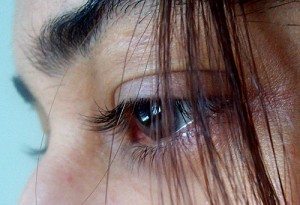Exploring Forgiveness Further
Andrew Engstrom
Article 3-B of the Forgiveness Section of the Positive Psychology Series

My previous article introduced the question of what exactly forgiveness is and sought to probe this question in a deeper way. This article continues this three-part series that explores forgiveness. Forgiveness can be identified in the following terms:
Forgiveness is a Choice
Forgiveness is precious because it can never be coerced. You are the only person who can decide to forgive someone, and your transgressor will know that you chose to do so of your own free will. Forgiveness can only be from the heart, namely, from someone’s true intentions and goodwill. This makes it strikingly similarity to love, and it is, in fact, an aspect of love.
Because forgiveness is a choice, this also means that it is not reserved for a special moment, a formal ritual, or a certain feeling. Even if the transgression is very old and has grown resentment like rust in a hurt person’s heart, all that is needed is for one to decide and to commit to forgive. There is no need to wait for a certain season, or even for your heart to be ready. It is forgiveness that helps your heart to feel peace toward someone – don’t wait to feel peace before you make the choice to forgive. Only wait for the ability to forgive sincerely and from your heart.
Forgiveness is about Your Heart
Whether you tell your transgressor that you forgive them, whether your forgiveness is received, or whether you are treated with defensiveness, the state of your forgiveness is based on your heart and not the results. You must choose to forgive, and the only condition is that you mean it – not that it is received.
Forgiveness Challenges Wrong
In order to forgive, you have to call a wrong a wrong. In doing this, you assert that your hurt is valid. This is not easy for some people. Yet transgressions need to be challenged as human beings tend to flee accountability and can usually give good reasons for the wrongs that they do. There is often a force that pushes a victim into silence, but that force requires push-back in order to bring the issue into the light. Sometimes a person needs to assert that their wounding is legitimate in order to initiate the process of forgiveness. A hurt is a hurt, no matter how it occurred – and sometimes you must forgive even though the other has done no real wrong for which they need to apologize. You need to forgive simply because you were hurt. Where a wrong has been committed, forgiveness is an act of judging it as such.
Forgiveness is an Act of Humanity
In a situation of division, forgiveness connects people. Even where forgiveness does not connect two parties or lead to reconciliation, it is nevertheless an action that is essentially orientated toward the other. Forgiveness is an act of humanity in that it cherishes repairing over destroying, goodwill over control, and life over isolation and safety. Whether or not someone believes in God, forgiveness is an acknowledgment that there is a higher power that is good, as no selfish reason exists to forgive. Even if you are only forgiving someone in order to achieve freedom from them, a prime difficulty of forgiving is that it acknowledges the other party as human. Forgiveness relinquishes a debt that is owed and this is based on the intangible and uniquely human concept of relationship. In a lovely sense, to forgive means that you are vulnerable enough to be hurt in the first place. Vulnerability and selflessness are more characteristic of our humanity than indulgence and greed.
 Forgiveness Humanizes
Forgiveness Humanizes
To take the matter a bit further, forgiveness ideally includes empathy for the transgressor. It involves a decision to not view them as simply evil, but rather to see the complexity in their own life and the forces at work in it. This is not to say that the transgressor has no responsibility (see the discussion on “condoning” in my following article in order to see what forgiveness is not), but it seeks to see their own hurts, vulnerabilities, and brokenness. After all, the transgressee shares the same human condition, which has also led them to hurt others.
For the purpose of this series, transgression refers to a hurt that has occurred, rather than a wrong that was committed. We sometimes intend to wrong one another – not always, but certainly more often than we are willing to admit. But forgiveness comes into play when someone is hurt, even though a wrong was never perpetrated or a true evil done. In more intimate relationships, forgiveness should be an act of empathy and connection, in which one avoids paying back a wrong with a wrong. But where a cruel or evil deed has occurred and there is no hope of reconciliation, forgiveness nevertheless takes the broken humanity of the transgressor into account. It acknowledges that they have a free will and that they need hope.
Christian Counseling to Tap into the Power of Forgiveness
It is my pleasure to join with clients and help them to see the ways in which they have already overcome in life, and how God has uniquely shaped them both to do great things and to experience joy and goodness in their lives and relationships.
“Touching Hands,” courtesy of Splitshire.com/touching-hands; “Her Eyes,” courtesy of Nisha A, Flickr CreativeCommons (CC BY 2.0)






